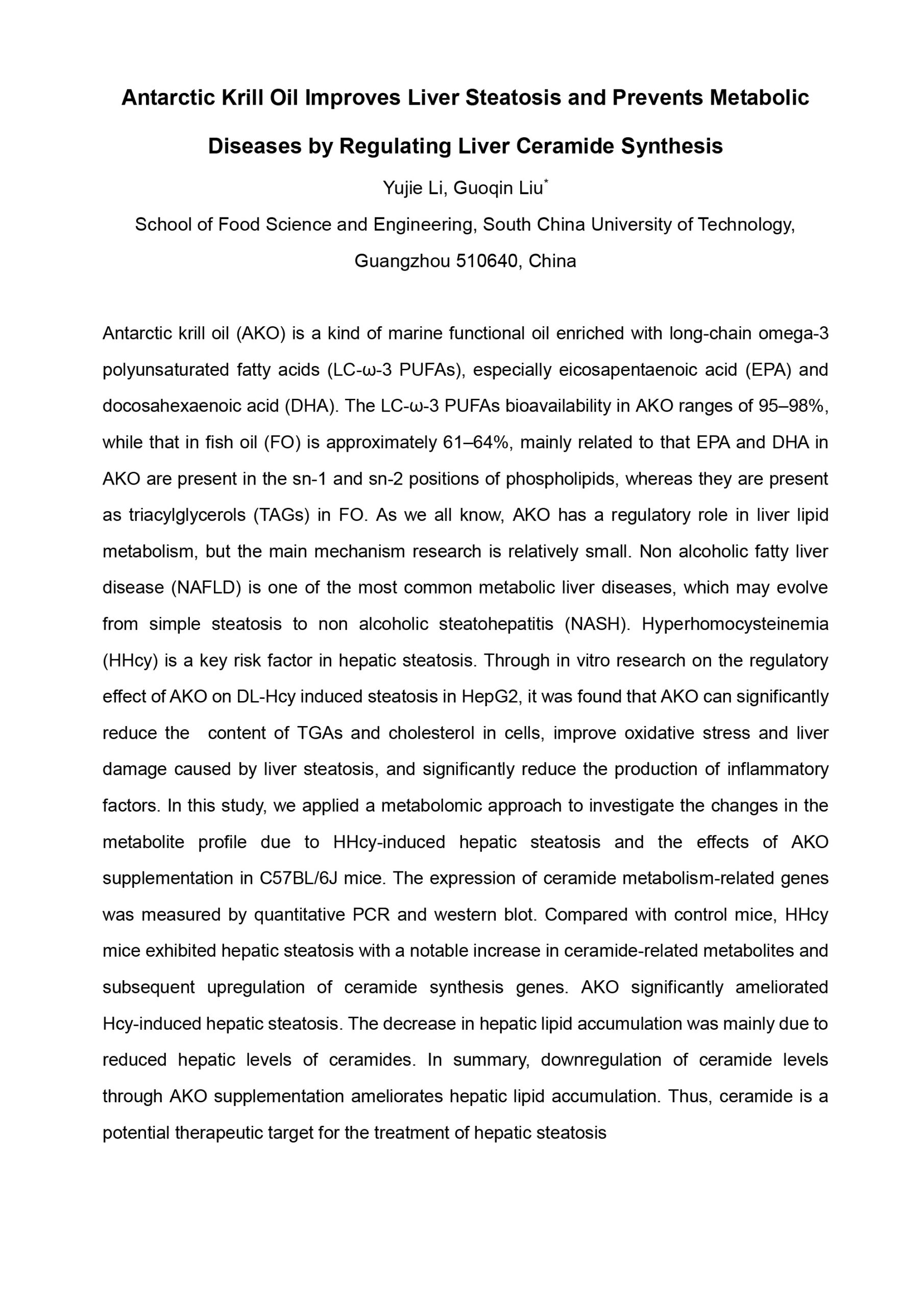Antarctic krill oil (AKO) is a kind of marine functional oil enriched with long-chain omega-3 polyunsaturated fatty acids (LC-ω-3 PUFAs), especially eicosapentaenoic acid (EPA) and docosahexaenoic acid (DHA). The LC-ω-3 PUFAs bioavailability in AKO ranges of 95–98%, while that in fish oil (FO) is approximately 61–64%, mainly related to that EPA and DHA in AKO are present in the sn-1 and sn-2 positions of phospholipids, whereas they are present as triacylglycerols (TAGs) in FO. As we all know, AKO has a regulatory role in liver lipid metabolism, but the main mechanism research is relatively small. Non alcoholic fatty liver disease (NAFLD) is one of the most common metabolic liver diseases, which may evolve from simple steatosis to non alcoholic steatohepatitis (NASH). Hyperhomocysteinemia (HHcy) is a key risk factor in hepatic steatosis. Through in vitro research on the regulatory effect of AKO on DL-Hcy induced steatosis in HepG2, it was found that AKO can significantly reduce the content of TGAs and cholesterol in cells, improve oxidative stress and liver damage caused by liver steatosis, and significantly reduce the production of inflammatory factors. In this study, we applied a metabolomic approach to investigate the changes in the metabolite profile due to HHcy-induced hepatic steatosis and the effects of AKO supplementation in C57BL/6J mice. The expression of ceramide metabolism-related genes was measured by quantitative PCR and western blot. Compared with control mice, HHcy mice exhibited hepatic steatosis with a notable increase in ceramide-related metabolites and subsequent upregulation of ceramide synthesis genes. AKO significantly ameliorated Hcy-induced hepatic steatosis. The decrease in hepatic lipid accumulation was mainly due to reduced hepatic levels of ceramides. In summary, downregulation of ceramide levels through AKO supplementation ameliorates hepatic lipid accumulation. Thus, ceramide is a potential therapeutic target for the treatment of hepatic steatosis.
